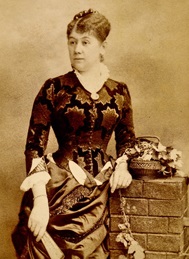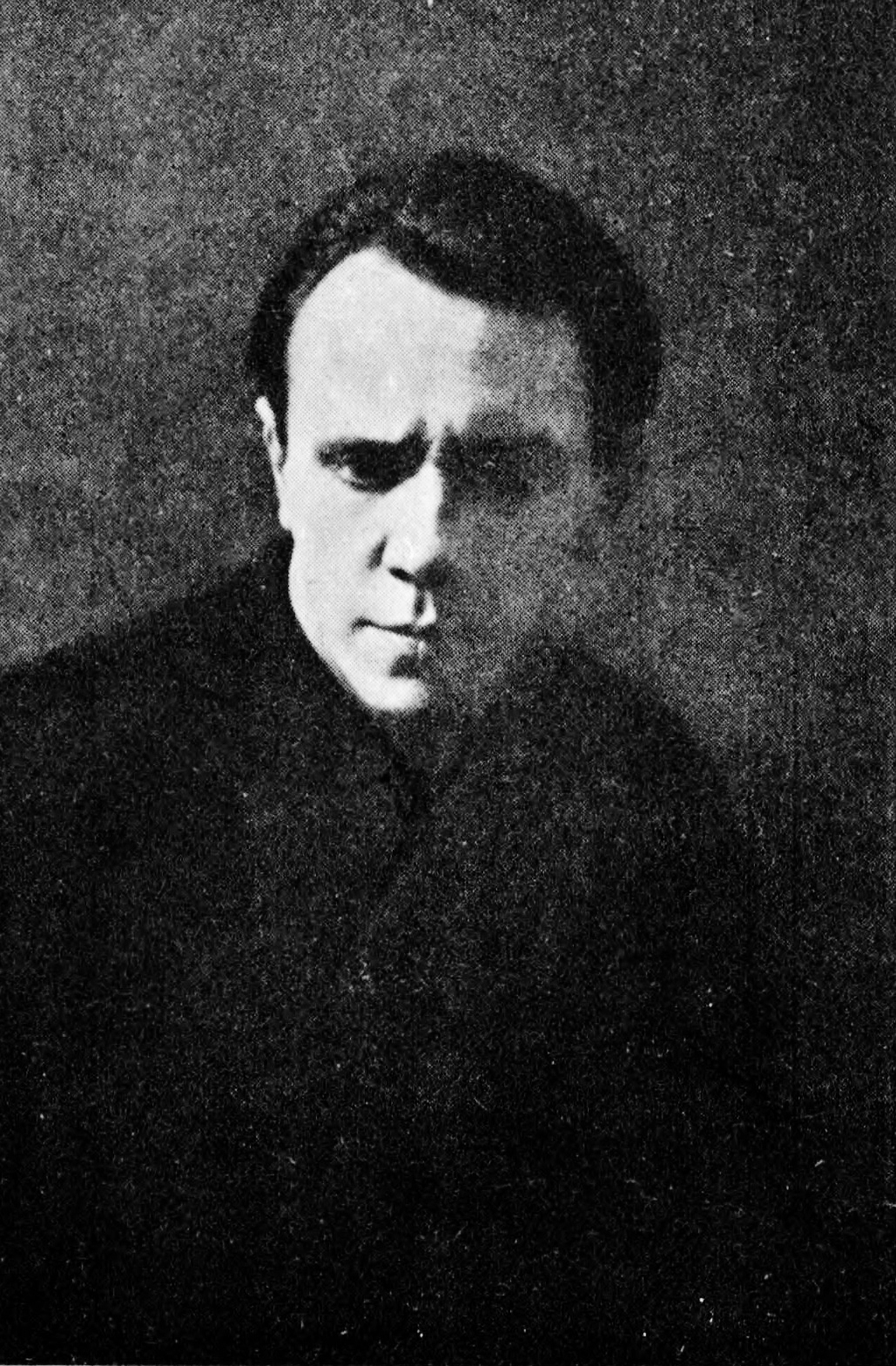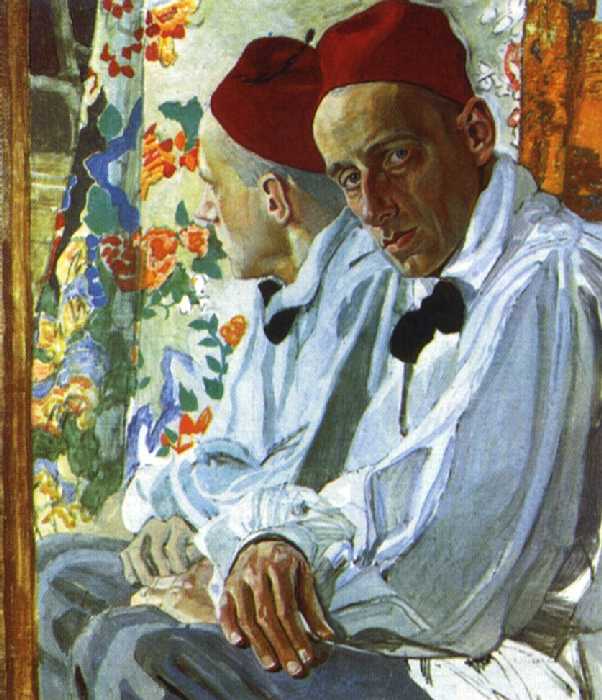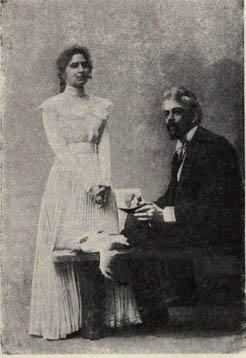|
Konstantin Stanislavski
Konstantin Sergeyevich Stanislavski ( rus, Константин Сергеевич Станиславский, p=kənstɐnʲˈtʲin sʲɪrˈɡʲejɪvʲɪtɕ stənʲɪˈslafskʲɪj, links=yes; ; 7 August 1938) was a seminal Russian and Soviet theatre practitioner. He was widely recognized as an outstanding character actor, and the many productions that he directed garnered him a reputation as one of the leading theatre directors of his generation. His principal fame and influence, however, rests on his "system" of actor training, preparation, and rehearsal technique. Stanislavski (his stage name) performed and directed as an amateur until the age of 33, when he co-founded the world-famous Moscow Art Theatre (MAT) company with Vladimir Nemirovich-Danchenko, following a legendary 18-hour discussion. Its influential tours of Europe (1906) and the US (1923–24), and its landmark productions of ''The Seagull'' (1898) and ''Hamlet'' (1911–12), established his reputation an ... [...More Info...] [...Related Items...] OR: [Wikipedia] [Google] [Baidu] [Amazon] |
:Template:Infobox Writer/doc
Infobox writer may be used to summarize information about a person who is a writer/author (includes screenwriters). If the writer-specific fields here are not needed, consider using the more general ; other infoboxes there can be found in :People and person infobox templates. This template may also be used as a module (or sub-template) of ; see WikiProject Infoboxes/embed for guidance on such usage. Syntax The infobox may be added by pasting the template as shown below into an article. All fields are optional. Any unused parameter names can be left blank or omitted. Parameters Please remove any parameters from an article's infobox that are unlikely to be used. All parameters are optional. Unless otherwise specified, if a parameter has multiple values, they should be comma-separated using the template: : which produces: : , language= If any of the individual values contain commas already, add to use semi-colons as separators: : which produces: : , pseu ... [...More Info...] [...Related Items...] OR: [Wikipedia] [Google] [Baidu] [Amazon] |
Theatre Practitioner
A theatre practitioner is someone who creates theatrical performances and/or produces a theoretical discourse that informs their practical work. A theatre practitioner may be a director, dramatist, actor, designer or a combination of these traditionally separate roles. ''Theatre practice'' describes the collective work that various theatre practitioners do. The term was not ordinarily applied to theatre-makers prior to the rise of modernism in the theatre. Instead, theatre praxis from Konstantin Stanislavski's development of his system is described through Vsevolod Meyerhold's biomechanics, Antonin Artaud's Theatre of cruelty, Bertolt Brecht's epic, and Jerzy Grotowski's poor theatre. Contemporary theatre practitioners include Augusto Boal with his Theatre of the Oppressed The Theatre of the Oppressed (TO) describes theatrical forms that the Brazilian theatre practitioner Augusto Boal first elaborated in the 1970s, initially in Brazil and later in Europe. Boal was influe ... [...More Info...] [...Related Items...] OR: [Wikipedia] [Google] [Baidu] [Amazon] |
Michael Chekhov
Mikhail Aleksandrovich Chekhov (; 16 August 1891 – 30 September 1955), known as Michael Chekhov, was a Russian-American actor, Theatre director, director, author, and theatre practitioner. He was a nephew of the playwright Anton Chekhov and a student of Konstantin Stanislavski. Stanislavski referred to him as his most brilliant student. Although mainly a stage actor, he made a few notable appearances on film, perhaps most memorably as the Freudian analyst in Alfred Hitchcock's ''Spellbound (1945 film), Spellbound'' (1945), for which he received his only Academy Awards, Academy Award nomination. Life He was born in Saint Petersburg, the son of Alexander Chekhov (the elder brother of Anton Chekhov) and his wife Natalya Aleksandrovna Golden. It was his father's second marriage. His mother, a Russian Jew, had been the governess to the children from his father's first marriage. He was raised in a middle-class family; his father was in the Imperial Customs Service and was a mod ... [...More Info...] [...Related Items...] OR: [Wikipedia] [Google] [Baidu] [Amazon] |
Yevgeny Vakhtangov
Yevgeny Bagrationovich Vakhtangov (also spelled Evgeny or Eugene; ; 13 February 1883 – 29 May 1922) was a Russian actor and theatre director who founded the Vakhtangov Theatre. He was a friend and mentor of Michael Chekhov.Martin BanhamThe Cambridge guide to theatre Cambridge University Press, 1995, p. 1157:"''Armenian born, Vakhtangov studied law at Moscow University before enrolling at A. I. Adashev’s drama school, where he was taught by, among others, Leopold Sulerzhitsky''." He is known for his distinctive style of theatre, his most notable production being ''Princess Turandot'' in 1922. Early life and education Vakhtangov was born to an Armenian father and a Russian mother in Vladikavkaz, Terek Oblast (now the capital of Northern Ossetia). He was educated at Moscow State University for a short time before joining the Moscow Art Theatre in 1911. Career Vakhtangov rose in the ranks at the Moscow Art Theatre, and by 1920 he was in charge of his own theatre studio. Fo ... [...More Info...] [...Related Items...] OR: [Wikipedia] [Google] [Baidu] [Amazon] |
Vsevolod Meyerhold
Vsevolod Emilyevich Meyerhold (; born ; 2 February 1940) was a Russian and Soviet theatre director, actor and theatrical producer. His provocative experiments dealing with physical being and symbolism in an unconventional theatre setting made him one of the seminal forces in modern international theatre. During the Great Purge, Meyerhold was arrested in June 1939. He was tortured, his wife was murdered, and he was executed on 2 February 1940. Life and work Early life Vsevolod Meyerhold was born Karl Kasimir Theodor Meyerhold in Penza on to Russian-German wine manufacturer Friedrich Emil Meyerhold and his Baltic German wife, Alvina Danilovna (). He was the youngest of eight children.Pitches (2003, pg. 4) His father came from an old noble family Meyerhold von Ritterholm. The elder Meyerhold emigrated to Russia in the 1850s. After completing school in 1895, Meyerhold studied law at Moscow University but never completed his degree. He was torn between studying theatr ... [...More Info...] [...Related Items...] OR: [Wikipedia] [Google] [Baidu] [Amazon] |
Edward Gordon Craig
Edward Henry Gordon CraigSome sources give "Henry Edward Gordon Craig". (born Edward Godwin; 16 January 1872 – 29 July 1966), sometimes known as Gordon Craig, was an English modernist theatre practitioner; he worked as an actor, director and scenic designer, as well as developing an influential body of theoretical writings. Craig was the son of actress Dame Ellen Terry. The Gordon Craig Theatre, built in Stevenage (the town of his birth), was named in his honour in 1975. Life and family The illegitimate son of the architect Edward Godwin and the actress Ellen Terry, Craig was born Edward Godwin on 16 January 1872 in Railway Street, Stevenage, in Hertfordshire, England, and baptised at age 16 as Edward Henry Gordon. He attended Bradfield College in Berkshire from May 1886 to July 1887. He took the surname Craig by deed poll at age 21.Hamilton, James"Craig, (Edward Henry) Gordon (1872–1966)" ''Oxford Dictionary of National Biography'', Oxford University Press, 2004 ... [...More Info...] [...Related Items...] OR: [Wikipedia] [Google] [Baidu] [Amazon] |
Mikhail Bulgakov
Mikhail Afanasyevich Bulgakov ( ; rus, links=no, Михаил Афанасьевич Булгаков, p=mʲɪxɐˈil ɐfɐˈnasʲjɪvʲɪdʑ bʊlˈɡakəf; – 10 March 1940) was a Russian and Soviet novelist and playwright. His novel ''The Master and Margarita'', published posthumously, has been called one of the masterpieces of the 20th century. He also wrote the novel ''The White Guard'' and the plays ''Ivan Vasilievich (play), Ivan Vasilievich'', ''Flight (play), Flight'' (also called ''The Run''), and ''The Days of the Turbins''. He wrote mostly about the horrors of the Russian Civil War and about the fate of Russian intellectuals and officers of the White Army, Tsarist Army caught up in revolution and Civil War.Bulgakov's biography on britannica subject of Bulgakov's works (main part o ... [...More Info...] [...Related Items...] OR: [Wikipedia] [Google] [Baidu] [Amazon] |
Maxim Gorky
Alexei Maximovich Peshkov (; – 18 June 1936), popularly known as Maxim Gorky (; ), was a Russian and Soviet writer and proponent of socialism. He was nominated five times for the Nobel Prize in Literature. Before his success as an author, he travelled widely across the Russian Empire, changing jobs frequently; these experiences would later influence his writing. He associated with fellow Russian writers Leo Tolstoy and Anton Chekhov, both mentioned by Gorky in his memoirs. Gorky was active in the emerging Marxist socialist movement and later supported the Bolsheviks. He publicly opposed the Tsarist regime and for a time closely associated himself with Vladimir Lenin and Alexander Bogdanov's Bolshevik wing of the Russian Social Democratic Labour Party. During World War I, Gorky supported pacifism and internationalism and anti-war protests. For a significant part of his life, he was exiled from Russia and later the Soviet Union, being critical both of Tsarism and of ... [...More Info...] [...Related Items...] OR: [Wikipedia] [Google] [Baidu] [Amazon] |
Anton Chekhov
Anton Pavlovich Chekhov (; ; 29 January 1860 – 15 July 1904) was a Russian playwright and short-story writer, widely considered to be one of the greatest writers of all time. His career as a playwright produced four classics, and his best short stories are held in high esteem by writers and critics. Along with Henrik Ibsen and August Strindberg, Chekhov is often referred to as one of the three seminal figures in the birth of early modernism in the theatre. Chekhov was a physician by profession. "Medicine is my lawful wife," he once said, "and literature is my mistress." Chekhov renounced the theatre after the reception of ''The Seagull'' in 1896, but the play was revived to acclaim in 1898 by Konstantin Stanislavski's Moscow Art Theatre, which subsequently also produced Chekhov's ''Uncle Vanya'' and premiered his last two plays, ''Three Sisters (play), Three Sisters'' and ''The Cherry Orchard''. These four works present a challenge to the acting ensemble as well as to a ... [...More Info...] [...Related Items...] OR: [Wikipedia] [Google] [Baidu] [Amazon] |
Moscow Art Theatre Production Of Hamlet
The Moscow Art Theatre production of ''Hamlet'' was a 1911–12 production of Hamlet, produced by Konstantin Stanislavski and Edward Gordon Craig. It is particularly important in the history of performances of ''Hamlet'' and of 20th-century theatre in general. Despite hostile reviews from the Russian press, the production attracted enthusiastic and unprecedented worldwide attention for the theatre, with reviews in Britain's ''The Times'' and in the French press that praised its unqualified success. The production placed the Moscow Art Theatre "on the cultural map for Western Europe", and it came to be regarded as a seminal event that influenced the subsequent history of production style in the theatre and revolutionised the staging of Shakespeare's plays in the 20th century. It became "one of the most famous and passionately discussed productions in the history of the modern stage." Chronology of production The story of Craig and Stanislavski began in 1908 when the eccentric Amer ... [...More Info...] [...Related Items...] OR: [Wikipedia] [Google] [Baidu] [Amazon] |
Moscow Art Theatre Production Of The Seagull
The Moscow Art Theatre production of ''The Seagull'' in 1898, directed by Konstantin Stanislavski and Vladimir Nemirovich-Danchenko, was a crucial milestone for the fledgling theatre company that has been described as "one of the greatest events in the history of Russian theatre and one of the greatest new developments in the History of drama, history of world drama." It was the first production in Moscow of Anton Chekhov, Anton Chekhov's 1896 play ''The Seagull'', though it had been performed with only moderate success in Saint Petersburg, St. Petersburg two years earlier. Nemirovich-Danchenko, who was a friend of Chekhov's, overcame the writer's refusal to allow the play to appear in Moscow after its earlier lacklustre reception and convinced Stanislavski to direct the play for their innovative and newly founded Moscow Art Theatre (MAT). The production opened on . The MAT's success was due to the fidelity of its delicate representation of everyday life, its intimate, Ensemble cas ... [...More Info...] [...Related Items...] OR: [Wikipedia] [Google] [Baidu] [Amazon] |
Vladimir Nemirovich-Danchenko
Vladimir Ivanovich Nemirovich-Danchenko (; – 25 April 1943) was a Soviet and Russian theatre director, writer, pedagogue Pedagogy (), most commonly understood as the approach to teaching, is the theory and practice of learning, and how this process influences, and is influenced by, the social, political, and psychological development of learners. Pedagogy, taken ..., playwright, producer and theatre administrator, who founded the Moscow Art Theatre with his colleague, Konstantin Stanislavski, in 1898. Biography Vladimir Ivanovich Danchenko was born into a Russian nobility, Russian noble family of mixed Zaporozhian Cossacks, Ukrainian-Armenians, Armenian descent, in the village of Shemokmedi near Ozurgeti (Guria, Georgia (country), Georgia). His father, Ivan Danchenko, was an officer in the Imperial Russian Army, and his mother, Aleksandra Yagubyan (1829–1914), was Armenian from the Tiflis Governorate, Governorate of Tiflis. He went to high school in Tbilisi, continuin ... [...More Info...] [...Related Items...] OR: [Wikipedia] [Google] [Baidu] [Amazon] |









